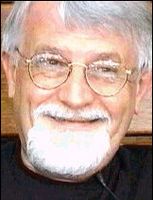Corless, R.
| English Phonetics | Corless, R. |
|---|
- Roger Jonathan Corless
- Roger Gregory-Tashi Corless
| Birth: | 1938 |
|---|---|
| Death: | 2007/01/12 |
Tibetan calendar dates
Other Biographical info:
- Wiki Pages
- Person description or short bio
- Roger Jonathan Corless died on January 12, 2007, in San Francisco, California,
from complications associated with cancer. Born in Merseyside, England, in 1938, he began studying religion at the age of sixteen, understanding himself as being Buddhist, though attending Christian churches. He studied theology at King’s College at the University of London, receiving a Bachelor of Divinity in 1961. In wrestling with the Hebrew and Greek texts of the Bible, and particularly in the sacrament of the Eucharist, Roger experienced God’s presence. He was baptized into the Roman Catholic church in 1964 after coming to the United States to pursue a PhD in Buddhist Studies at the University of Wisconsin–Madison, from which he received that degree in 1973. From there, he joined the Department of Religion at Duke University and remained there until his retirement in 2000. In 1980, Roger took refuge as a Gelugpa Buddhist under Geshela Lhundup Sopa, having first obtained permission from his Catholic spiritual director and having explained to Geshela what he was doing. His refuge or dharma name was Lhundup Tashi, ‘‘spontaneous fortune’’ or ‘‘luck.’’ Later, Roger also became a Benedictine oblate, taking Gregory as his Oblate name after Pope Gregory, whose instruction to Augustine of Canterbury was not to destroy the pagan temples, but to bring them into the church by trying to find what was good and preparatory to the Gospel. Roger understood himself as a dual practitioner, but did not seek to blend the two practices or traditions. Rather, he sought to be present to each in their own irreconcilable differences and deep riches.
Expand to see this person's philosophical positions on Buddha-nature.
| Is Buddha-nature considered definitive or provisional? | |
|---|---|
| Position: | |
| Notes: | |
| All beings have Buddha-nature | |
| Position: | |
| If "Qualified", explain: | |
| Notes: | |
| Which Wheel Turning | |
| Position: | |
| Notes: | |
| Yogācāra vs Madhyamaka | |
| Position: | |
| Notes: | |
| Zhentong vs Rangtong | |
| Position: | |
| Notes: | |
| Promotes how many vehicles? | |
| Position: | |
| Notes: | |
| Analytic vs Meditative Tradition | |
| Position: | |
| Notes: | |
| What is Buddha-nature? | |
| Position: | |
| Notes: | |
| Svātantrika (རང་རྒྱུད་) vs Prāsaṅgika (ཐལ་འགྱུར་པ་) | |
| Position: | |
| Notes: | |
| Causal nature of the vajrapāda | |
| Position: | |
